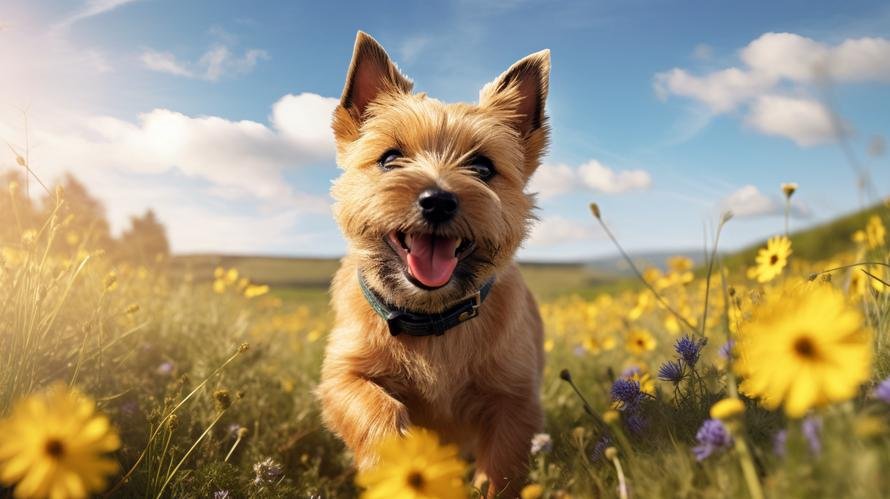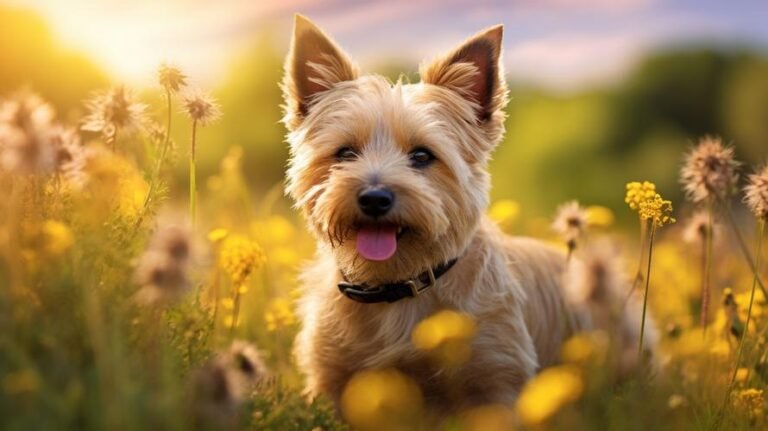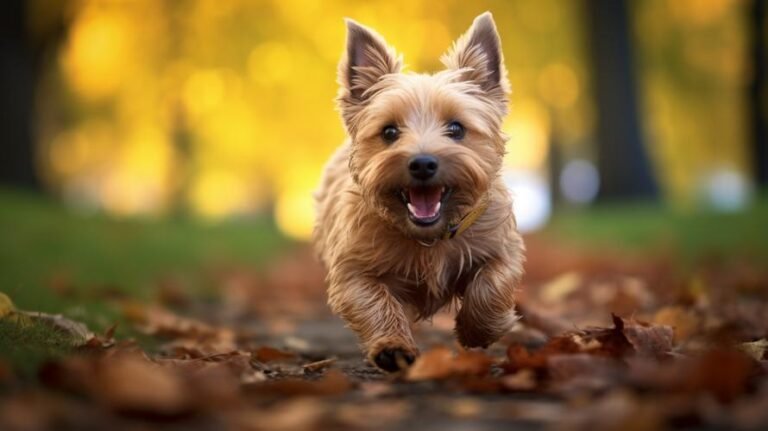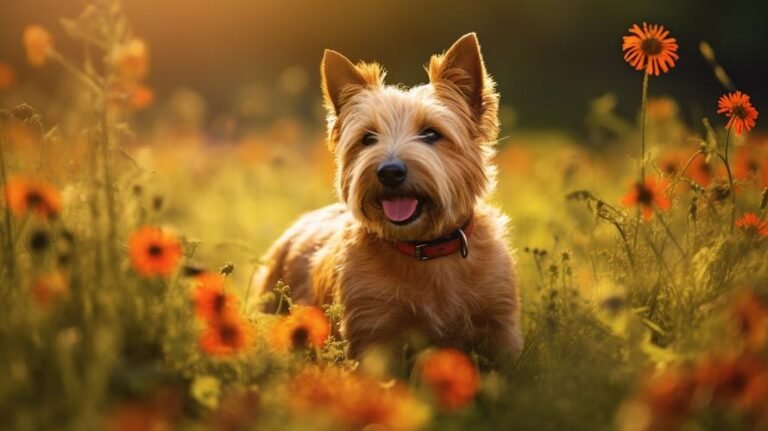It’s a little-known fact that Norwich Terriers, with their adorable teddy bear faces and tiny, stout bodies, were once upon a time hired as ratters on farms. That’s right, these lovable little dogs were expected to chase down and deal with tiny, squeaky pests that were wreaking havoc in barns and farmhouses. So much so that landlords often kept them as residing rodenticides, which makes us wonder—is a Norwich Terrier a guard dog?
To give you the short answer, Norwich Terriers are not typically considered guard dogs. Yet, don’t let their size fool you; these small dogs are packed with energy and fearlessness that can sometimes be directed into protective behavior.
Let’s start from the beginning, delving into their history, to better understand why a Norwich Terrier might be a surprising (though non-traditional) choice for a guard dog.
Hailing from England, Norwich Terriers, as mentioned, were originally used as ratters in the 19th century. As small dogs, they were perfect for getting into tiny spaces, flushing out rats and other barnyard pests. They also have a feisty and fearless temperament, unafraid to take on a pest despite its size or tenacity.
Beyond being rodent chasers, Norwich Terriers were also excellent fox hunters, agile enough to keep up with larger hunting dogs while still being small enough to chase the fox right into its den. This experience endowed them with shrewd and ceaseless determination, a characteristic streak that still marks the breed today.
So, while a Norwich Terrier may not seem like the traditional hulking guard dog that springs to mind when you picture a home protector, they do possess certain traits that can be pertinent for guard dog duties.
For starters, Norwich Terriers are very alert. They are always aware of their surroundings and will immediately notice if something is amiss. If a stranger were to approach the house, a Norwich Terrier is likely to be the first to notice.
Secondly, these dogs possess strong loyalty towards their family. Sometimes, this manifests as a protective nature, especially towards children. These dogs have been known to somewhat instinctually place themselves between their young charges and others as if to say, “Back off, this pup is under my protection!”
However, there are caveats you need to keep in mind as well.
While they might seem like pint-sized protectors with their alertness and loyalty, Norwich Terriers are still small dogs. They weigh only about 12 pounds and stand about 10 inches tall-no match for an intrusive threat. Moreover, they are typically friendly and social animals known for their love of people. As such, they are as likely to welcome a stranger with a wagging tail as they are to bark at them.
Another key consideration is their voice. Guard dogs often use their deep, intimidating bark to deter intruders. The Norwich Terrier indeed has a bark – a loud one at that – but it doesn’t carry the intimidation factor of a German Shepherd or a Doberman. Instead, they’ll sound the alarm to alert their owners.
Given their limited size, friendliness towards humans in general, and not-so-intimidating bark, Norwich Terriers aren’t best suited as dedicated guard dogs. However, they could make for a wonderful watchdog.
For those who might not know the difference, a watchdog and a guard dog are not the same things. The job of a watchdog is to alert their owners to the presence of strangers or potential threats, not directly deal with the danger. And this is where the Norwich Terrier truly shines.
With their sharp senses, natural alertness, robust vocal cords, and unwavering loyalty to their families, Norwich Terriers make excellent watchdogs. If you’re looking for a small canine companion who will keep their eyes and ears open for any potential trouble, a Norwich Terrier may just be the dog for you.
In sum, while Norwich Terriers might not be the ultimate guard dogs, they definitely make excellent watchdogs. Their alert nature, coupled with their unwavering loyalty, makes them perfect for keeping households aware of their surroundings. Regardless, under all these roles, first and foremost, they are loving and devoted family pets that will fill your home with joy and companionship.



